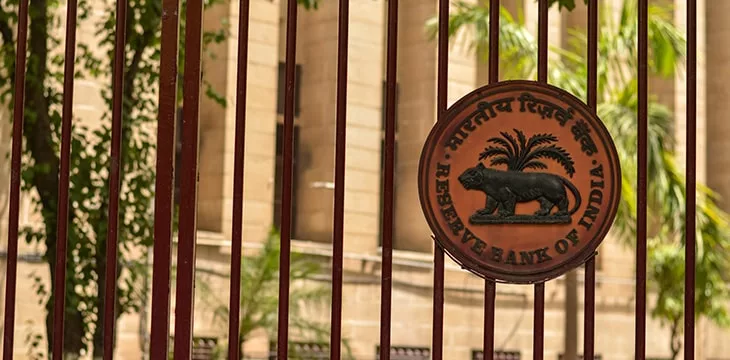How blockchain empowers women in developing economies

How does blockchain improve financial inclusion in African countries?
Access to advanced smartphones and fast internet is not a reality in many villages across Africa. Blockchain projects offer solutions to overcome these difficulties.
Project Kotani Pay in Kenya allows users to withdraw from crypto using a text-based platform on a basic mobile that does not require an internet connection. No bank account is mandatory as the platform works as a decentralized, borderless application. This makes financial services offered via blockchain accessible to the unbanked population without smartphones or internet access. Kotani Pay’s pilot programs have been successful in helping 15,000 beneficiaries.
Interestingly, one of the pilot programs served a 97% female population, enabling them to receive a universal basic income of $1 a day. Per Kotani Pay, some of these women used these funds to set up small vegetable gardens or run small businesses to supplement their household incomes.
Friendlier and user-friendly solutions similar to Kotani Pay are also developing in other African nations. Another similar initiative is Project LEAF in Rwanda.
Project LEAF, supported by UNICEF, supports borderless international transactions on a regular phone. Many of the users are refugee women and their families from the Democratic Republic of Congo who can now receive funds from families living in other countries.
Does tokenization help women access credit?
Tokenization on the blockchain helps turn things like a house, an antique, or even a farm into digital assets. This has opened up new avenues of income generation in Kenyan villages.
ATMs, banks and credit cards are financial enablers that are a seamless part of an individual’s everyday life, but for many in Kenya’s villages this is far from reality. This is where Grassroots Economics brings a new change using blockchain and cryptocurrencies.
Grassroots Economics, a blockchain-based initiative in Kenya supported by UNICEF’s Innovation Fund, is generating opportunities for access to credit in low-income areas by creating tokens called Community Inclusion Currencies (CICs). Villagers in a severe crisis usually do not have cash or access to liquidity or credit; but what they have are crops, cattle, goods or labor services. These are the resources that can be monetized via tokenization.
CICs are tokens backed by real goods and services in a particular community, village or town, such as the work of carpenters, cooks, midwives, etc. Kenyan villagers can use the CIC tokens to secure a line of credit, backed by their own resources.
How is blockchain changing the coffee supply chain in Rwanda?
The use of blockchain technology in coffee plantations has resulted in better traceability in supply chains, increased income and empowered female farmers.
One of Rwanda’s most important export products is coffee, which is widely sold in Germany. Despite this, small plantation owner families often struggle to make a living from coffee farming due to low yields, inability to obtain a desired market price or inability to manage production costs. Female farmers also do a lot of work on these coffee plantations and are often underpaid.
The International Women’s Coffee Alliance has partnered with blockchain programs and initiatives to create scalable and transferable supply chain solutions to track coffee produced by women farmers in Rwanda.
This provides transparency about the origin of the coffee source to contribute to a better market price in the export market and ensure that the female farmers receive their fair share of the income from the subsequent sale.
Its success has led to similar partnerships between farmers, plantations and coffee plant alliances with multinational conglomerates such as Nestle. In 2020, Nestle began exploring the blockchain supply chain and launched a pilot project for limited edition blockchain coffee beans from three origins – Brazil, Rwanda and Colombia.
How does Propy empower real estate agents with blockchain?
Propy uses blockchain technology to simplify the transaction process for residential real estate purchases. It was selected as a technology pioneer by the World Economic Forum in 2021.
Propy is a Silicon Valley, blockchain-based real estate startup built on the Ethereum network by Natalia Karayaneva. Propy introduced smart contracts and automation to help brokers, agents and real estate companies migrate to a paperless deal closing process.
The United States Bureau of Labor Statistics May 2021 Occupational Employment and Wages report estimated that there are 175,920 real estate agents employed in the United States. Interestingly, the sector is inclusive, as 65% of these real estate agents are women, many of whom are from diverse backgrounds and ethnicities, such as Hispanics, Latinos, and Asians.
Propy has the potential to empower these women real estate agents to close deals faster, reduce fraud and ensure transparency in property rights and property transfers. As Propy expands into developing economies, it will make property records on the blockchain more accessible to women globally.
Will blockchain secure property rights in Honduras?
Honduras, an underdeveloped country in Central America, is striving to resolve property rights issues in the country using blockchain.
The ability to prove land ownership is a crucial safeguard for those whose livelihoods depend on agriculture and cattle. The World Bank and other key international organizations have repeatedly emphasized the need for clear property rights and improved property management and maintenance of records.
Property rights are thus recognized as an important step towards women’s autonomy and development. Yet land registration systems are often unreliable and prone to corruption in underdeveloped nations, such as Honduras, leaving farmers, including women farmers and their families, open to unauthorized violations of land and property rights.
Factom, a US-based blockchain startup, partnered with the government of Honduras to develop a blockchain land registry system. This key idea seeks to stop land title fraud and uplift the disadvantaged section of the population. However, due to various political reasons, the project has been stalled, but it has the potential to bring much-needed transformation.
Is blockchain creating career paths for women in India?
Indian firms, standing in the world market as a technology-first economy, are rapidly investing in blockchain technologies to create new job opportunities.
On March 2, 2023, cryptocurrency exchange WazirX published its survey of 400 female crypto holders in India and concluded an uptick in women getting into crypto investing.
However, this uptrend is not limited to just investing. Women in India are actively participating in career opportunities in Web3, crypto and blockchain platforms as creators, builders, influencers, founders, developers and more. Blockchain-related jobs open up new and much-needed job opportunities for young demographics in this rapidly growing decentralized online world.
The annual ETHWMN Fellowship in India, promoted by ETHIndia Devfolio, is an eight-week program exclusively for women to upskill Web2 developers and enable them to make the transition to Web3. Training, removing entry barriers for women, creating a more inclusive and remote working environment are helping to bring more Indian women into the blockchain workforce.
The projects highlighted show that cryptocurrencies and blockchain technology have the potential to improve financial inclusion for women globally. Access to such initiatives can raise the quality of life and expand economic opportunities for women.























